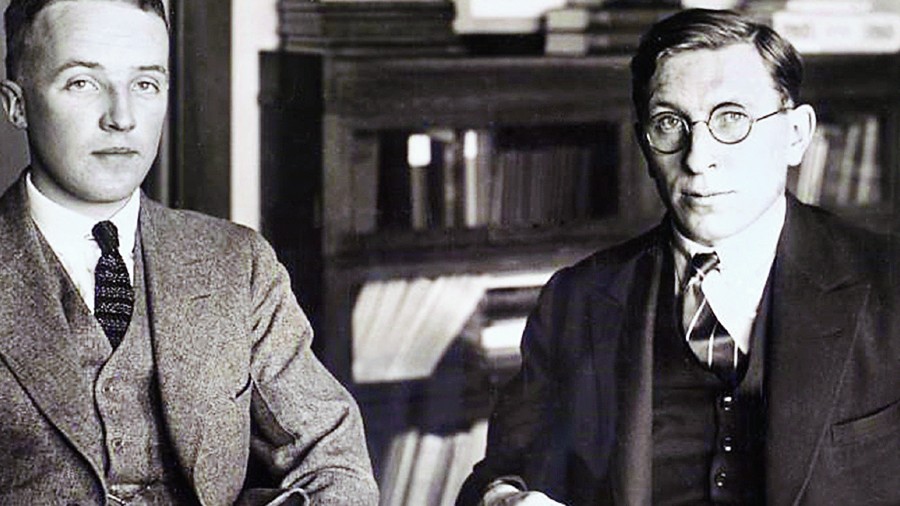1921 was a seminal year for science. That was the year insulin was presented to the world by Frederick Banting — a feat which led to deserved recognition via a Nobel Prize with colleague John McLeod — with some help from Charles Best and James Collip.
A hundred years later, it is perhaps time to pause and evaluate this discovery. Science would be hard put to think of many discoveries that have had such an impact on millions of lives over the course of time. The discovery of penicillin by Alexander Fleming is another such; these feats have been transformative of the human condition.
Insulin continues to hold pride of place among medical discoveries; in one fell sweep, it transformed the lives of many living with type 1 diabetes. In fact, it not just transformed, it literally saved such patients from certain death. In type 1 diabetes, the ability of the pancreas to produce insulin stops due to an autoimmune process. The emergence of the ability to administer insulin from outside has saved countless lives that would have been lost prior to this discovery.
In the last century, the progress and evolution of insulin has been breathtaking and poignant. Scientists have worked on improving it — moving from animal extracts to human extracts and then to synthetic varieties with better absorption rates and efficacy with time. Lest we forget, beyond type 1 diabetes insulin continues to have a significant role as a treatment option for people with type 2 diabetes, thereby widening its impact on humanity as a whole. Type 2 diabetes is a chronic disease that has its own debilitating outcomes if not treated.
Diabetes, whatever the type, has worrying outcomes whether it be issues with eyes, feet and the kidneys or indeed, the risk of heart attacks and strokes. Even in a world where the debate around diets rages on, as well as the advent of newer medications, insulin continues to occupy a prime role in the control of diabetes — thus reducing risk of complications — which, apart from its debilitating effects on the individual, has the potential to have wider implications for society such as loss of revenue, medical costs or, indeed, impact on family.
What is also worthwhile to note is how the choice of delivery of insulin has continued to evolve. From archaic structures and painful apparatus to much slicker pen devices, the progression in delivery has been a key feature in the evolution of insulin. Further development has involved insulin pumps, connected systems, algorithms and the “artificial pancreas” as humanity keeps developing technologies to enable insulin delivery in easier ways, trying to mimic as best as possible a hormone which the body itself is not producing enough of or at all.
While the story of insulin’s evolution is uplifting, the same cannot be said about the issue of access. As with many products in a consumer world, access to this life-saving medicine is, sadly, not as freely available as one would hope for. Stories of stigma attached to the lack of finances to support such medicine abound, and usually patients in countries that do not have adequate healthcare funding suffer due to this. My point of view as a doctor is that if there is a medicine that categorically saves lives — and the lack of it causes death — then there is a need for governments to be able to fund it, simply on grounds of decency, humanity and sensibility. If it is critical to have armed forces to protect a nation’s security, then so is the need to provide medicines that save the lives of one’s citizens.
Here comes the twist in the tale. Banting, Collip and Best, in an effort to show their altruistic commitment to advancing medicine, sold the patent rights for insulin to the University of Toronto for only $1 each in the hope that it could be mass produced and made widely available at low cost. Alas, that altruism fell by the wayside. Over the years, patients have had variable access to insulin and outcomes in diabetes depending on the ability to finance the drug, whether by the government or an individual.
In the hundred years since its discovery, the impact on wider humanity of this wonder drug has been breathtaking. Countless lives have been saved and improved, giving many parents the chance to see their children grow up and many others see their loved ones prosper without complications. The challenge is to make insulin accessible to all, irrespective of their ability to pay. One hopes the future allows that to happen, as we collectively offer our salute to the fabulous quartet of Banting, Best, Collip and MacLeod.
Recently awarded the OBE,Dr Kar is the National Specialty Advisor on Diabetes to the NHS, England
Medical Marvels
1799 Smallpox vaccination
The first vaccine ever, it eradicated smallpox. More important, it introduced immunisation
1897 First synthesis of synthetic aspirin
Originally used as a pain reliever, it has been used to prevent heart attacks since 1948
1928 Penicillin
The first antibiotic, it revolutionised the treatment of infections
1935 Vitamin C
Introduced to treat scurvy from malnutrition, it is among the foundations of modern nutrition
1954 Oral contraceptives
It gave women more control over their lives and had a huge impact on shaping society
1978 Statin/Mevinolin
It has the ability to stop repeat heart attacks
1987 Protease inhibitor
Developed to treat HIV/AIDS, it can be used to treat viral diseases
2020 mRNA vaccines against Sars-Cov2
This new medical technology allows us to develop vaccines quickly.











